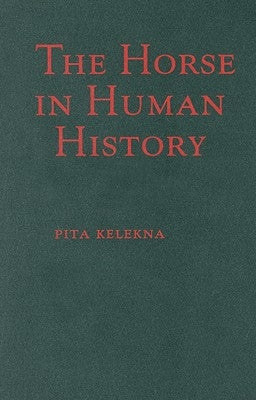1
/
of
1
Cambridge University Press
The Horse in Human History
The Horse in Human History
Regular price
€90,95 EUR
Regular price
Sale price
€90,95 EUR
Shipping calculated at checkout.
Quantity
Couldn't load pickup availability
The horse is surely the "aristocrat" of animals domesticated by man. This book documents the origins of horse domestication on the Pontic-Caspian steppes some 6,000 years ago and the consequent migration of equestrian tribes across Eurasia to the borders of sedentary states. Horse-chariotry and cavalry in effect changed the nature of warfare in the civilizations of the Middle East, India, and China. But, beyond the battlefield, horsepower also afforded great advances in transport, agriculture, industry, and science. Rapidity of horse communications forged far-flung equestrian empires, where language, law, weights, measures, and writing systems were standardized and revolutionary technologies and ideas were disseminated across continents. Always recognizing this dual character of horsepower - both destructive and constructive - the politico-military and economic importance of the horse is discussed in the rise of Hittite, Achaemenid, Chinese, Greco-Roman, Arab, Mongol, and Turkic states. Following Columbian contact, Old and New World cultures are contrastively evaluated in terms of presence or absence of the horse. And Spanish conquest of the horseless Americas is seen as the model for subsequent European equestrian colonization of horseless territories around the planet.
Author: Pita Kelekna
Publisher: Cambridge University Press
Published: 04/01/2009
Pages: 478
Binding Type: Hardcover
Weight: 1.65lbs
Size: 9.00h x 6.20w x 1.10d
ISBN: 9780521516594
Review Citation(s):
Chronicle of Higher Education 06/12/2009 pg. 20
Choice 03/01/2010
Author: Pita Kelekna
Publisher: Cambridge University Press
Published: 04/01/2009
Pages: 478
Binding Type: Hardcover
Weight: 1.65lbs
Size: 9.00h x 6.20w x 1.10d
ISBN: 9780521516594
Review Citation(s):
Chronicle of Higher Education 06/12/2009 pg. 20
Choice 03/01/2010
About the Author
Kelekna, Pita: - Pita Kelekna holds a Ph.D. in anthropology from the University of New Mexico. Early fieldwork in indigenous societies of the Americas and later research conducted across the Middle East, Central and East Asia have well equipped her for this world-wide analysis of the importance of the horse in human society. She is a member of the New York Academy of Sciences and the American Anthropological Association.
Share


